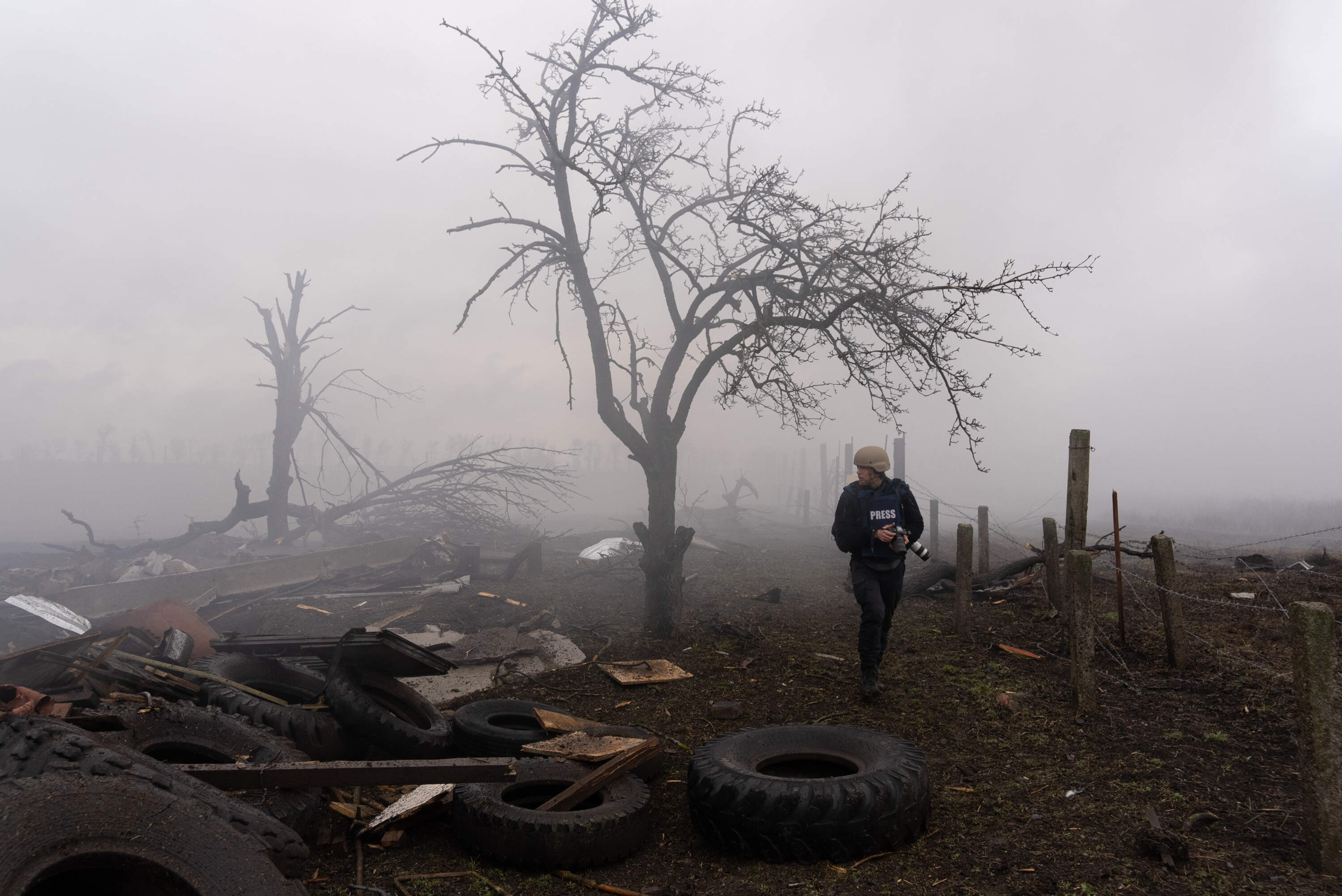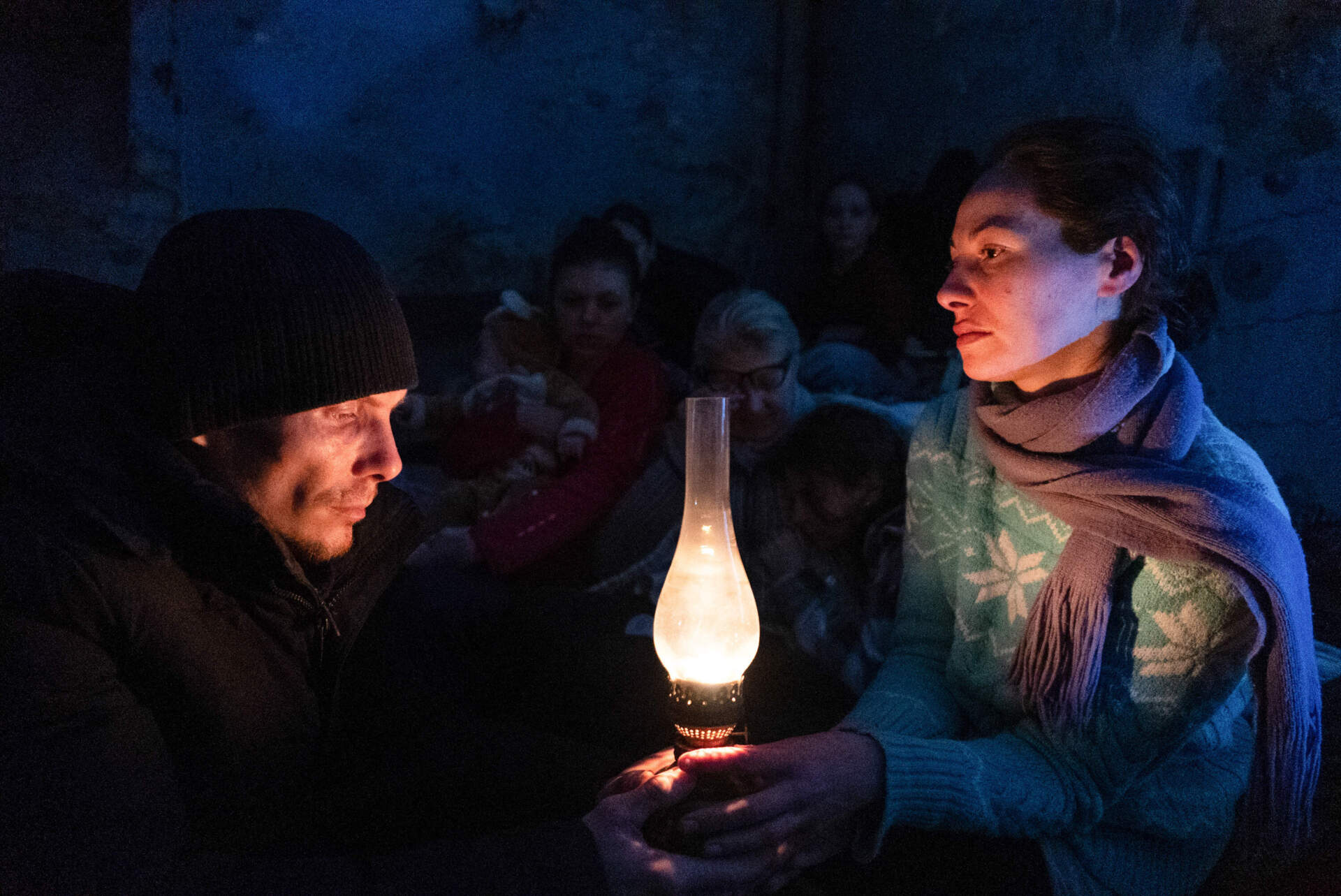Advertisement
Boston producers behind '20 Days in Mariupol' may bring home an Oscar

In the earliest days of the full-scale Russian invasion of Ukraine, Raney Aronson-Rath saw something important in the news clips coming out of Mariupol. Especially in scenes of a war-torn maternity hospital. “I felt like the world woke up,” said the Frontline editor-in-chief and executive producer.
Within a few weeks, Aronson-Rath had opened a path for those clips – and additional unseen footage of people under siege — to become “20 Days in Mariupol,” a documentary produced by Frontline, the PBS investigative series based at GBH, and in partnership with The Associated Press. On Sunday, the raw, heartbreaking account competes for Best Documentary Feature at the Academy Awards ceremony.
Using a 20-day countdown structure, the film shows the brutal conditions suffered by people who lose their homes, their children, and their freedom to a conflict they do not necessarily understand. It also shows the risks taken by three journalists on the ground, including first-time director Mstyslav Chernov, to get themselves and their footage to safety. The city remains under Russian military control.
“20 Days” has picked up several high-profile honors since it premiered to audience and critical acclaim at Sundance in January 2023, including a BAFTA for Best Documentary. Two other titles produced by Frontline, under the leadership of Aronson-Rath, of Lexington, have earned Academy Award nominations (“Abacus: Small Enough to Jail,” 2017 and “For Sama,” 2019). But it’s the first nomination for Frontline editor Michelle Mizner, of Wayland, credited as a producer on “20 Days” along with Aronson-Rath, Chernov and Derl McCrudden.

To jumpstart the project, Aronson-Rath described how in March 2022 she and Mizner each had long conversations with Chernov immediately after he and his colleagues had escaped Mariupol. Chernov had more footage. He had a vision for its use. They quickly agreed, a documentary should be made.
Mizner said that she and Chernov worked remotely, ultimately deciding to limit the account to Chernov’s time on the ground. In the film, Chernov encounters some who call him a “prostitute” for filming while others implore him to keep filming.
Because of Chernov’s decade of experience covering conflict in his home nation of Ukraine and elsewhere, Mizner said his footage helps viewers “know where to look.” Despite initial reluctance, he narrates the scenes in voice over but not on camera. “Positioning him as the author and as the true storyteller in this film felt essential,” said Mizner, who sees a compatibility with the other Best Documentary Feature nominees that “are told by people who are of the communities that they're making a film about.”

Yet, Mizner pointed out, one thing that makes “20 Days” and all Frontline documentaries stand apart is an adherence to strict journalistic policies. Mizner gave the example of scenes of explosions witnessed by Chernov. Other filmmakers might add sound but in “20 Days” they left what he captured with limited recording equipment.
Given the odds, Mizner said, “Being nominated [for an Academy Award] is an incredible outcome,” and not one she imagined for herself, growing up in California and choosing Boston after college in part because of GBH. She said that documentaries that “ended with the WGBH insignia bumper at the end” (while making the station’s three-tone signature sound), made a lasting impression. After getting involved with Boston’s documentary community she eventually found assistant editing work with GBH series Nova and Frontline. She secured a staff position at Frontline in 2014.
One of Mizner’s biggest dreams for Sunday is that people will “hopefully seek out the story if they haven't seen it already.”
Since taking the reins of Frontline in 2016, Aronson-Rath has expanded the broadcast’s scope to include other journalistic forms and platforms—interactive media, podcasts, and theatrical releases. She explained that Frontline pursues a theatrical release, required for an Academy Award nomination, for about one title per year. “We were able to reach so many more people with this film because of this distribution,” she said.
Aronson-Rath said she and several of the film’s collaborators, including Mizner, will arrive early in Los Angeles to attend awards-related events and Sunday’s ceremony. As for how the team will hold the gravity of their project with the glitz of a major American cultural event, she said, “I think there's going to be a couple of quiet moments that we take to say to each other, ‘Our work, this work, has had great impact… Our work has reached millions of people. Our work is ongoing.”
Indeed, Frontline will release another documentary about Ukraine in April. A second collaboration between Mizner and Chernov is also in the works.
For Aronson-Rath, positive reception to “20 Days” is a win for journalism. She said her most pressing concern “is that we share a reality of fact-based journalism that's fair and nonpartisan.” Late in the film, a Russian news outlet suggests that actors staged some of the scenes Chernov shot and were broadcast globally. “We need people who can tell us what's really happening,” said Aronson-Rath, “especially when we're all up against mis- and disinformation.”
No matter the outcome Sunday night, Aronson-Rath said, “We're talking to people who are filming right now and actually undertaking great risk.”
